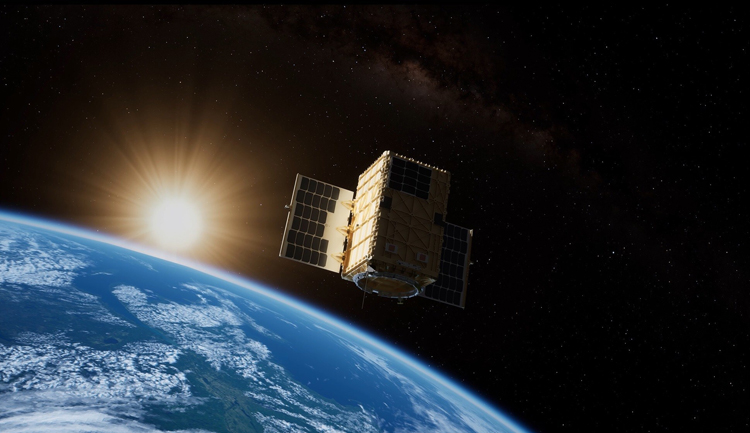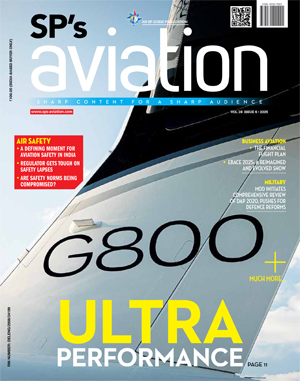INDIAN ARMED FORCES CHIEFS ON OUR RELENTLESS AND FOCUSED PUBLISHING EFFORTS

The insightful articles, inspiring narrations and analytical perspectives presented by the Editorial Team, establish an alluring connect with the reader. My compliments and best wishes to SP Guide Publications.

"Over the past 60 years, the growth of SP Guide Publications has mirrored the rising stature of Indian Navy. Its well-researched and informative magazines on Defence and Aerospace sector have served to shape an educated opinion of our military personnel, policy makers and the public alike. I wish SP's Publication team continued success, fair winds and following seas in all future endeavour!"

Since, its inception in 1964, SP Guide Publications has consistently demonstrated commitment to high-quality journalism in the aerospace and defence sectors, earning a well-deserved reputation as Asia's largest media house in this domain. I wish SP Guide Publications continued success in its pursuit of excellence.
- Prime Minister Modi Visits Punjab’s Adampur Air Base, Interacts with Airmen after Successful ‘Operation Sindoor’; Stern Message to Pakistan
- The layered Air Defence systems that worked superbly, the key element of Operation Sindoor
- Operation Sindoor | Day 2 DGMOs Briefing
- Operation Sindoor: Resolute yet Restrained
- India's Operation Sindoor Sends a Clear Message to Terror and the World – ‘ZERO TOLERANCE’
- Japan and India set forth a defence cooperation consultancy framework, talks on tank and jet engines
Boeing Pioneering Quantum Communications Technology with In-Space Test Satellite
- Internally-funded program set to demonstrate quantum networking in space
- Technology can unlock applications across commercial, civil and military sectors, including agriculture, climate science, navigation and secure communication
- First-of-its-kind compact design completed validation in a lab environment, with space-hardened version currently planned for 2026 in-space demonstration

Boeing today announced the scheduled 2026 launch of a satellite - dubbed Q4S - which is designed to demonstrate quantum entanglement swapping capabilities on orbit. This Boeing-funded, first-of-its-kind space mission brings humanity closer to building a secure, global quantum internet that connects quantum sensors and computers.
Quantum sensors are much more precise than today's state-of-the-art instruments and quantum computers have the capacity to process large amounts of data, offering potential to revolutionize an array of industries. This experiment is attempting to demonstrate quantum networking in space, helping to better understand how these networks can be built across vast distances and remain highly synchronized.
Boeing is setting the stage for a revolution in how we handle information with secure, quantum-enhanced applications, such as fault-tolerant systems that reduce errors in computing, secure voting mechanisms that protect electoral integrity, and blind quantum computing which allows data to be processed without exposure.
"We're making a big bet on quantum technology," said Jay Lowell, chief engineer for Boeing's Disruptive Computing, Networks & Sensors organization. "Quantum entanglement swapping underpins the communication of the future, expanding quantum networks beyond simple point-to-point communication. We're launching Q4S to prove it can be done in orbit."
Entanglement swapping relies on quantum teleportation – a method where the information carried by a particle can be transferred without having to move the particle itself across the distance. Albert Einstein famously referred to this ethereal concept as "spooky action at a distance," underscoring the complex nature of quantum mechanics.
"By demonstrating entanglement swapping, we can create a scalable network, where quantum information can be transmitted over vast distances, something currently limited by decoherence and loss," said Lowell.
Quantum networking capabilities in space can unlock new potential, helping researchers gather more data about the Earth and space environments – areas where current instrument sensitivity and resolution limit progress.
"Boeing has always served as a pioneer, pushing the boundaries of what's possible," said Todd Citron, Boeing's Chief Technology Officer. "We're doing much more than participating in quantum research, we are leading the way to operationalize and scale quantum technologies for global applications."
The year-long Q4S demonstration involves two entangled-photon pair sources housed within a space vehicle. Boeing's payload and technology partner, HRL Laboratories, a joint venture between Boeing and GM, has made significant advancements in benchtop exercises as the joint team finalizes technical designs of a space-hardened payload that is ready for launch.





